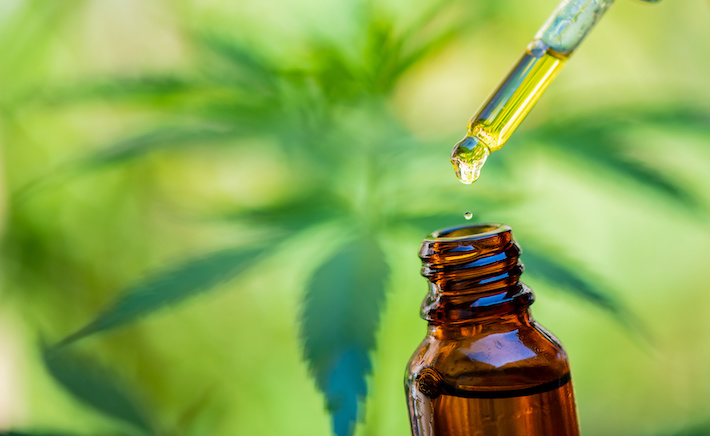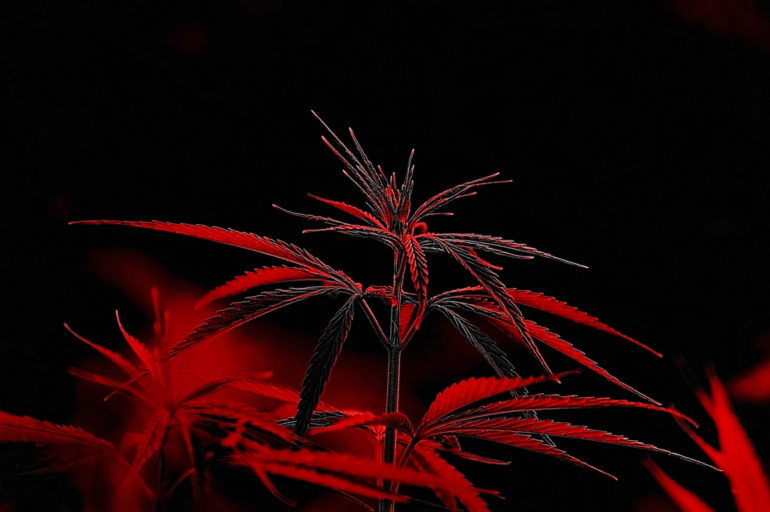With all the hype around CBD, it’s not surprising to see people saying that it helps with a huge range of different problems. Some of these are more hype than substance, but one area where CBD holds genuine promise is with anxiety and related issues. While anxiety is one of the most common reasons people use CBD – and there is evidence that it helps – the actual picture is a little broader than that, with evidence showing that CBD helps with a much broader group of issues related to “learned fear.” But what does this mean? What conditions could it help with? And what’s the evidence? Here’s a run-down of the basics.
Summary:
- Most fears are “learned,” and learned fear is a crucial part of anxiety disorders and related conditions like PTSD.
- It works like the famous Pavlov’s dog experiment: you make an association between a stimulus and fear, so next time you see the stimulus, you get scared.
- Current treatments include exposure therapy and SSRI medications, which have issues with effectiveness and side effects.
- CBD has been shown to reduce the immediate fear response, impair the “reconsolidation” process where the brain strengthens the association and help the brain remove the association.
- More evidence is needed, but CBD shows a lot of promise.
What is Learned Fear?
There are two types of fear: innate fear and learned fear. Innate fears are ones that every human possesses from birth, whereas learned fears are ones we pick up through the course of our lives, for example, from watching our parents or a negative experience we’ve had. There are actually only two innate fears – the fears of falling and loud sounds – so the vast majority of fear is learned. We seem to be predisposed to some fears, such as of snakes and spiders, but these are still technically classed as being learned rather than innate.
So learned fear is essentially anything you become afraid of through the course of learning about and experiencing the world. A kid that accidentally touches a hot stove and burns his hand will associate the hot stove with that pain and will avoid it in future. This has a very Pavlovian quality: you associate the stimulus (i.e. the hot stove) with the negative reinforcement (the burn) and then they stay linked.
Similarly, Seth Norrholm, a neuroscientist from Emory University, uses the example of a veteran who survived an attempt attack with an explosive concealed in a shopping bag. Although a shopping bag is just a shopping bag 99% of the time, the experience means that if he’s redeployed and sees a shopping bag again, “he has a fight or flight response. Here, an association has been made between the cue and the fear outcome.”
Anxiety and PTSD As Types of Learned Fear
PTSD and other anxiety disorders are types of learned fear, because they essentially work based on the same principle. In most cases, after the fear conditioning (like the explosive in a shopping bag), the same conditioned stimulus will show up in situations without the same consequence (somebody just using a shopping bag for groceries) and eventually the link between the two will be extinguished.
However, when people develop PTSD, their brains don’t successfully extinguish the link, so the stimulus will continually activate the fear, and in the example the veteran will still be afraid when he sees a shopping bag. The same process happens in other anxiety disorders, with a difficulty with the extinction phase leading to extreme reactions to otherwise innocuous stimuli. Essentially, they’re conditions where your brain doesn’t overcome the initial experience and the fear remains.
How CBD Could Help with Learned Fear
From the discussion above, it’s clear that if CBD helps with the extinction process or impacts the process of forming the fear memories, it could potentially help with learned fear. The current approach to treatment comes in two forms. Firstly, there are psychological treatments like exposure therapy (where the person is presented with the stimulus in a safe setting to try to help with extinction), cognitive behavioral therapy (a more general psychological treatment that works for a lot of conditions) and eye movement desensitization and reprocessing (similar to exposure therapy but more complicated in practice). Secondly, medications such as selective serotonin reuptake inhibitors (SSRIs), anti-seizure medications or even benzodiazepines are also used.
Both of these approaches have downsides. Psychological treatments work at first, but they don’t always work long-term, and it can be difficult to apply them outside of the context of the therapist’s office. Drugs of abuse or some anxiety medications can also stop them from working as well. Medications, on the other hand, often take a while to have an effect (like SSRIs and other anti-depressants) and can have side effects.
So the potential of cannabidiol is in either helping the extinction process from a psychological perspective or in producing similar effects to medications like SSRIs with fewer side effects. The body’s cannabinoid system (the endocannabinoid system) has receptors in the areas of the brain responsible for stress, fear and a lot more, which makes it a good candidate even before you consider any specific evidence.
The Evidence on CBD and Learned Fear
There are many studies on CBD and learned fear, with more mechanistic studies on animals and trials in human patients giving insight into how well it works. These studies have been summarized in two reviews, one from 2016 and an update from 2019, and generally show there is a lot of potential in CBD as a treatment.
There are three main findings from the research that make CBD a great potential treatment: it has an immediate effect of reducing the expression of fear, it disrupts the reconsolidation of fear memories and it enhances the extinction process.
CBD Reduces the Expression of Fear
For the immediate effect, the impact of CBD appears to be related to its effect on 5-HT1A receptors, which is a type of serotonin receptor and also plays a role in how SSRIs work. A lot of the evidence on this comes from studies in rats, but there are some initial studies on humans (such as one where people were given a simulated public speaking test with or without CBD) that support the animal studies.
CBD Impairs Reconsolidation of Fears
Tests on the reconsolidation of fear memories (i.e. the remembering and strengthening of the association) tend to give CBD when a fear memory is retrieved, and they generally show that CBD reduces the expression of fear on future retrieval of the memory. In other words, CBD makes it harder for the brain to “renew” the fear association. Most of the research in this area is also on rats, with one example finding that CBD given directly after memory retrieval was able to disrupt the reconsolidation of one and seven-day old memories.
CBD Helps With the Extinction of Fears
The evidence on enhancing the extinction of the fear memories also mainly comes from studies of rats, but again the evidence suggests that CBD works to reduce the learned fear. In one example study, rats were conditioned with a fear and then 24 hours later, given three sessions of exposure to the same stimulus without the scary accompaniment, with CBD or other medications given beforehand, and then exposed with no treatment another 24 hours later. The results showed that CBD improved the fear extinction process, with effects persisting to the final test.
Other research found some conflicting results, with CBD enhancing extinction when the conditioning was strong but impairing it with weaker conditioning.
Conclusion – Is CBD The Future of Treatment for Learned Fears?

The evidence surrounding CBD and learned fear follows a pretty familiar pattern to anybody following the research on CBD. The results are all promising, which is to be expected because the anxiety-reducing effect of CBD is pretty well-established, but there aren’t many studies in humans in particular, and more research is needed.
Related: Can THC Reduce Recurring Nightmares?
That said, there is a lot of reason to be optimistic. The studies on rats allow scientists to understand and study how cannabidiol has its effect, and the consensus thus far is that it works similarly to SSRIs for anxiety and PTSD, except with less of a lag between starting treatment and feeling effects, as well as much fewer side effects. There is a potential for it to be used alongside existing psychological treatments in the future, and it could even become a treatment in its own right.
So while a medically-approved CBD treatment for learned fear related conditions might be a way off, this is definitely a space to watch, and one with a lot of potential to help people who’ve been through trauma.

